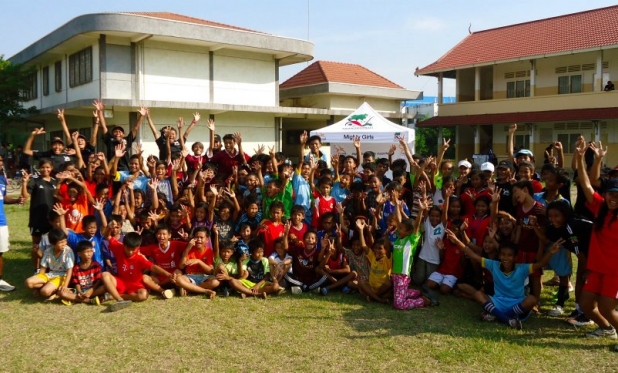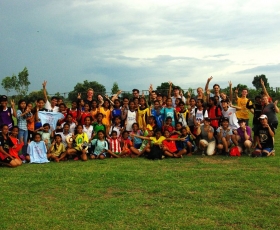Name
Jo (CIPFA)
Employer
Audit Commission
Day job
National Fraud Initiative Coordinator
Assignment
SALT Academy
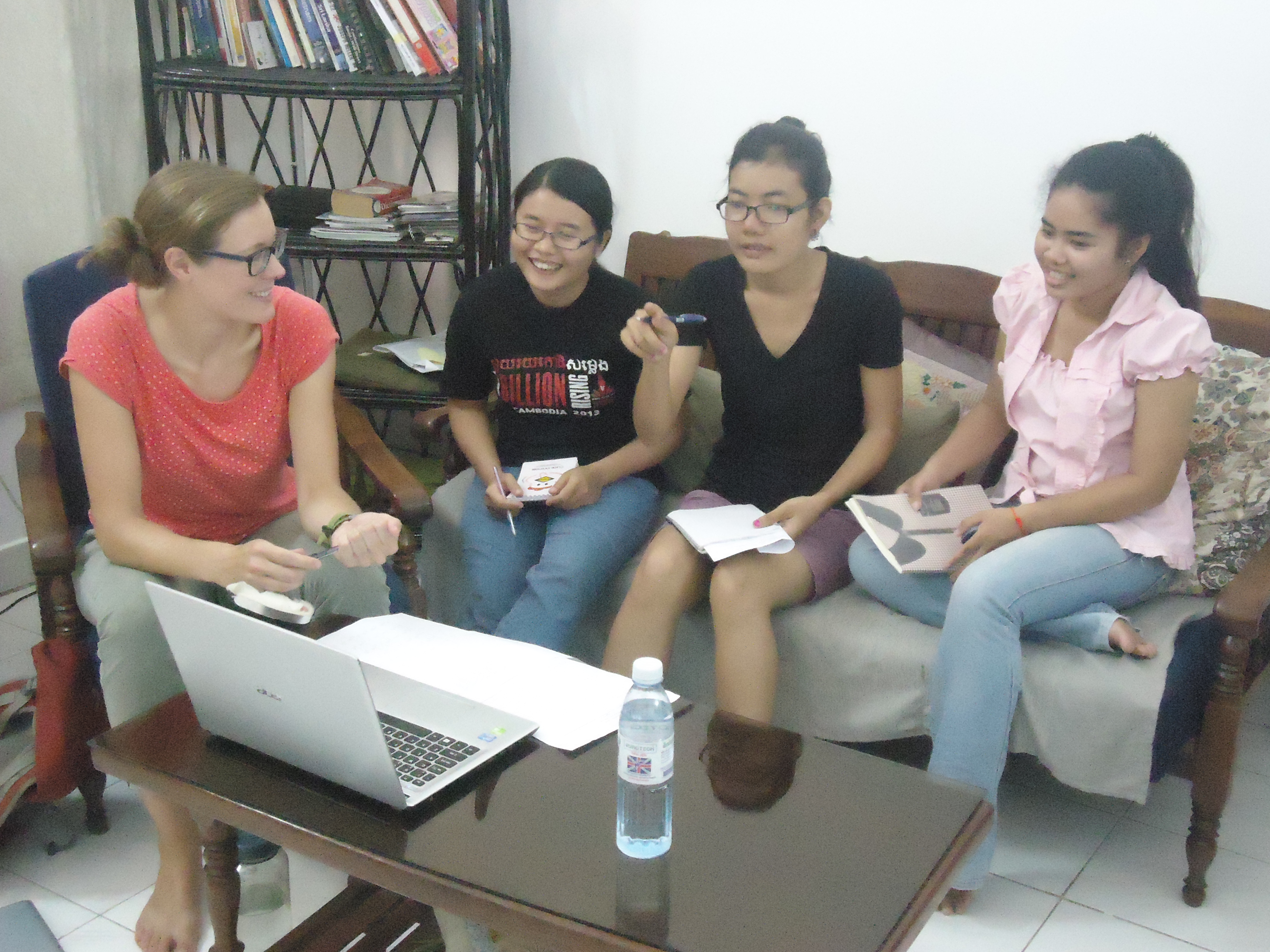
Joanna (CIPFA) had been considering a break from her career in public sector audit for some time and was keen contribute during her time overseas and not simply travel from place-to-place. When she came across AfID’s volunteer assignments she thought it was the ‘perfect mix’ of work and adventure.
After speaking with the programmes team at AfID assignment options were carefully tailored to her experience, skills and personal preferences.
Jo undertook two volunteer placements through AfID as part of her year-long sabbatical from work but supported three organisations; Phare Ponleu Selpak (PPS) & SALT Academy in Battambang for three-months in late 2012 and Cambodia Cares in Phnom Penh for three-weeks in summer 2013.
PPS is an artistic centre and school for children, founded by former refugees. All the children benefit from a nutrition program, medical support, education support, as well as from cultural and artistic activities. SALT Academy develops young leaders through a sustainable community-based football league, incorporating life skills lessons, vocational training, and community engagement. Cambodia Cares is a newly formed volunteering network with an aim to engage Cambodians and encourage them to volunteer.
AfID caught up with Jo to find out more about her volunteering experience…
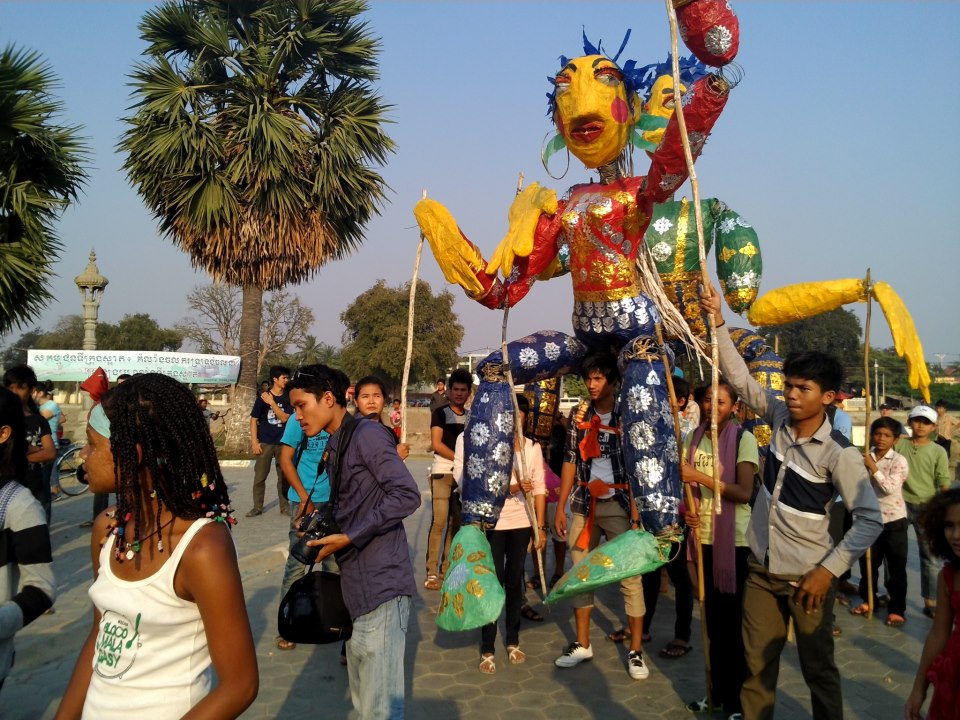 What made you think of volunteering?
What made you think of volunteering?I had started to think about a career break to do a bit of travelling but I was a bit reluctant to just travel from place to place for a whole year, so I started to look into voluntary opportunities. I came across AfID’s great website and I realised I could actually use my core skills as well as travel to some really interesting places – it was a perfect mix for me.
How transferrable were your skills?
Very transferable. It turns out basic accounting and auditing are the same all over the world. At the organisations I was placed everything was cash-based and involved a lot of paper, which took me a while to get used to. It’s very much about going back to basics, so I had to think back to my first few months studying CIPFA, but I soon remembered things. I even helped one of the accountants with a bit of revision for her accountancy degree – the practice questions were not too dissimilar to some of the ones I’d answered in the past!
Did you have worries before you left, and, if so, were they alleviated once you got there?
I think my main concern was feeling lonely and missing my friends and family. It took a bit of time, but I was able to make a number of friends. I was fortunate because Battambang, the town in North-West Cambodia where I was based for four months, had a small ex-pat population so there were always a few things going on and plenty of people to meet. I was also a bit worried that my work experience in public-sector-audit would not be relevant but I soon realised that this wasn’t going to be a problem. So many of the skills I’d taken for granted, like using Excel, were the kind of things that the local staff wanted to learn about and develop.
What did the assignment entail? What do you feel you achieved?
My first assignment was for four-months at PPS, a performing-arts charity. I did a whole variety of things including training staff on everything from budgeting to interview techniques, updating their financial policy and a mini-audit. Towards the end of that placement I also did a couple of days a week at SALT, an non-profit community organisation which organised football leagues, coaching and leadership training for young people; I helped them write their financial procedures as well as talked to the finance staff about budgeting.
I was fortunate enough to go back to Cambodia and do another three-week placement at a small NGO called Cambodia Cares which was just starting out. I helped them set up their financial systems and also did a bit of training. I think the main thing I achieved was to build up the skills of the finance staff and help them run things more efficiently. Most of them knew their organisations inside-out, but they definitely benefited from a trained accountant helping them improve their finance and accounting.
Have you learnt or built on any new skills?
Yes, I’ve learnt a lot about working in a different culture. Although I knew before I went that things would be run a bit differently but it’s hard to imagine what it’s like until you get there. I think my communication skills have definitely improved; speaking to people about budgets and financial systems when English wasn’t their first language taught me a great deal. I’ve also learnt a lot about accounting at small organisations where cash is the only format they can work in (before I went I was used to working with big public sector bodies, I don’t think I’d ever seen petty cash in operation!) .
What would you say to anyone thinking about volunteering in the future?
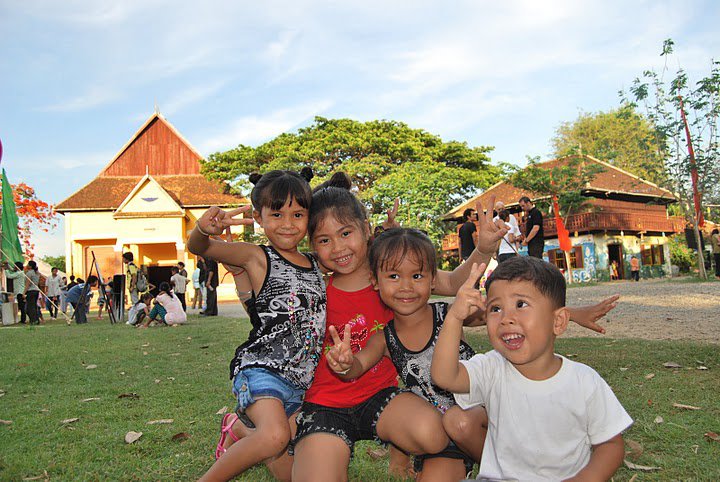
Go for it! Especially if you like travelling and visiting different places. It’s a great way to get to know a place a bit more than you would as a tourist, meet local people and learn about a new culture. It’s not always easy and you may have times where you think you’re not achieving anything but in the end it’s really inspiring to meet and work with people who are working on amazing projects that are really making a difference to people’s lives. It’s also really fun - I got to visit the circus, run by one of my placements, play football with one of the best girls’ football teams in Cambodia and try a whole variety of different local foods that the finance manager often brought in.
How beneficial are volunteers to the NGOs?
Really beneficial, I think volunteers can bring skills to an organisation that they don’t have and build on the existing skills of the staff. I was quite shocked at how the people I met really valued accounting skills – they were actually excited to meet a qualified accountant and had loads of questions to ask me. Coming from an audit background meant that people being pleased to see me at work was very unusual!
The best thing about the type of volunteering that AfID offer is that you don’t take a job that could be done by a local person and you don’t leave a massive skill shortage once you move on; instead, because of the coaching and training, individuals should be able to do their jobs better. It’s amazing the difference a day’s Excel training can make to a person who has to produce a lot of complex donor reports.
I also realised first-hand how privileged we are in the UK to have access to really good education and training. It’s great to be able to share this with people who don’t have such readily available opportunities.
Has volunteering changed your outlook on what you want to do with you working life?
Yes it has. I always thought I’d like to work abroad or in the UK for an NGO and my five-months in Cambodia confirmed this to be the case. I’m not sure when I’ll do this, I’m back in my old job - hopefully learning and building some skills - which one day in the future I can use at an NGO.
